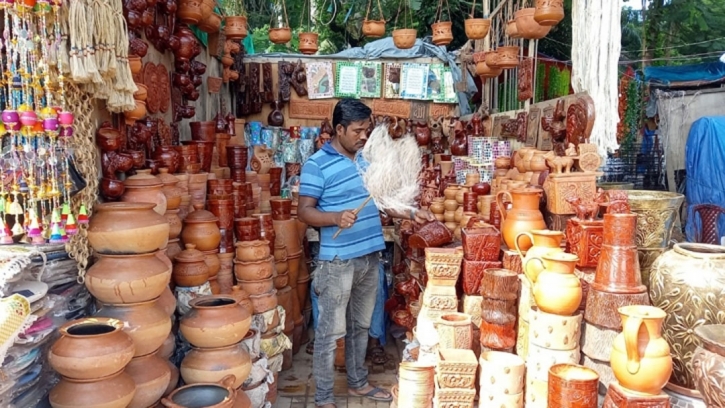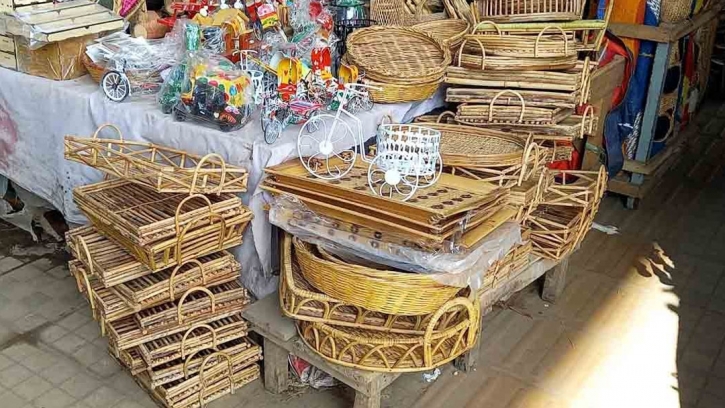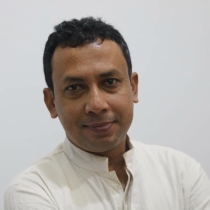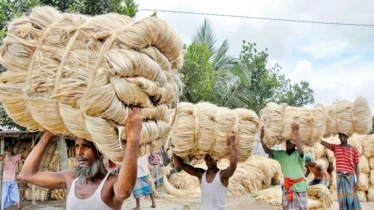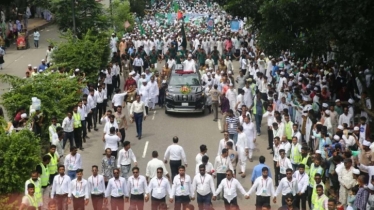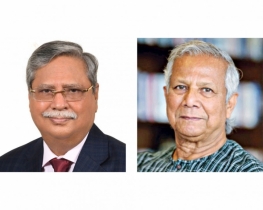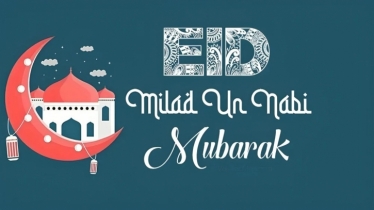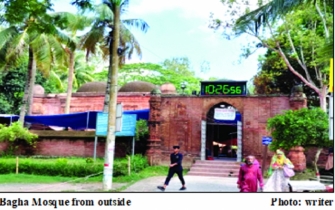There was a time when bullock carts could be seen on the village roads. When the sun set, the flames of the hurricane would burn from house to house. Furniture made of jute cones and cane was seen in in the houses. Times have changed, along with these old useful things are disappearing. Its void is filled by mechanical cars, electric bulbs, and wooden furniture. Because in the modern era, use of these things is very incompatible.
However, even if it seems surprising, these old traditions of Bengali folk culture can still be seen in a small market built at the Doel Chatttar in the capital. These artifacts can be seen if you walk along the left side of the road from the square to the Supreme Court. This market, consisting of 40 shops, has clay pot, pen holder, flower tubs, plates, Tepa dolls, elephants, horses, banks, bowls, glasses, spoons, cane trays, bamboo fishing poles and various jute items.
Talking to The South Asian Times, businessmen of the market said that the market was set there about 30 years ago with a few shops. With the passage of time, the number of shops have increased. These shops are selling artifacts and goods manufactured in different parts of the country. Especially the earthenware made in Savar of Dhaka. Also, products come here from Patuakhali, Barisal, Rangpur. Hobbyists are the buyers. Moreover, people visiting Dhaka also coming to these shops.
This market is a shining example of the lifestyle of the brick-and-stone capital, embellishing the heritage of Bengali folk culture to the shoppers.
Buyers said that artifacts are on the path of extinction. These traditional artifacts should survive for ages and generations after generations. And the sellers claim that these shops will survive if a permanent market is built for them.
Labanno, who came to this market from capital’s Khilgaon area, told The South Asian Times, “I came here to buy artifacts. I will decorate my house with these traditional goods. I hope the country’s traditional pottery industry will survive if buyers come here and buy artifacts”.
Another buyer named Jaydev Pal said, “We are Bengalis and we have rich heritage. products of this market reflects our heritage.”
A trader named Sagar said, “The journey of this market has been started 30 years back. Our business was good. But now the situation is reversed due to the prevailing political situation in the country.”
Talking to The South Asian Times, Bahar Uddin, president of Dhaka Metropolitan Pottery Cooperative Association, said, “Products of this market is highlighting our heritage and culture. If one come here he or she will true taste of Bangladesh’s heritage even without buying our products.
We are here selling those products which are almost on the verge of extinction. But, our stores are temporary. We want the government should provide us a permanent market. If we get a permanent market, it will help flourish our business as well as uphold our reputation.”
END/BR

